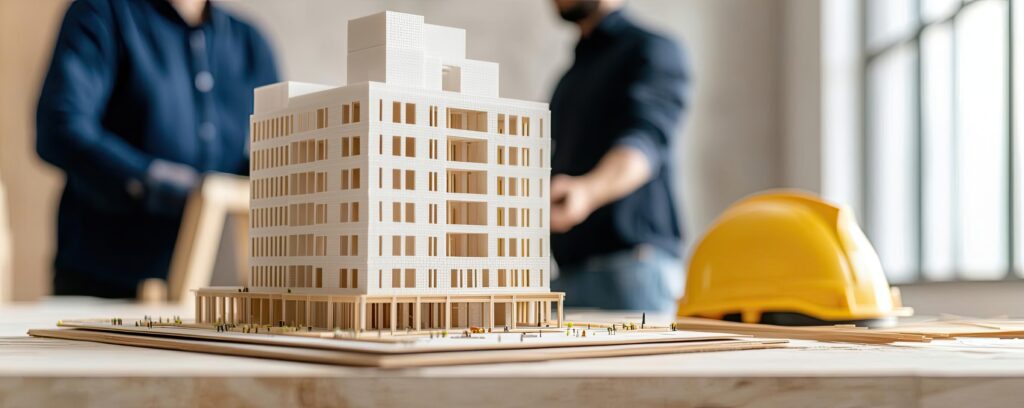“Preparation is the key to success.” – Henry Ford
Let’s start at the beginning—the process of creating an optimal hotel product. For simplicity, let’s assume you already have a property where you plan to open a hotel, and it’s time to take the first step toward its realization. What kind of hotel will it be? What is your goal? Investor, Quo Vadis?
You may already have a vision of how your hotel should look, the standard and range of services it will offer, the name (or brand) it will carry, and even how the lobby walls will be decorated. But to confirm your assumptions, it is essential to measure them against reality through a comprehensive and professional investment analysis.
To ensure your hotel does not become merely an impressive “monument” or a financial burden but a profitable investment, its size, offerings, standard, architecture, and more must align with existing conditions—never the other way around (well, almost never).
Location Analysis: The First Step
Analyzing the location is crucial, considering its strengths and weaknesses, current and potential demand generators, regional development plans, and the competitive landscape, including historical performance. This process helps define the property’s potential and segment your future guests, which in turn determines the hotel’s optimal scope of offerings.
Additionally, parameters for the property will be influenced by formal factors, such as spatial planning regulations, zoning conditions, and, in the case of conversions, the existing structure of the building. For historical sites, conservation agreements may also come into play.
Avoid Overinvestment: The Trap of Excessive Spending
Many overinvested hotels enjoy popularity among guests but become a financial burden for investors, with reasonable returns only a distant hope. For instance, overpaying for the land (which typically should not exceed 20% of the total investment cost) can set the wrong foundation.
The core of feasibility analysis lies in financial forecasting. While it’s true that forecasting in today’s unpredictable times carries significant risk, it is still necessary to outline the most credible scenario based on current data and future projections.
Our team’s analyses assume no further escalation of war, no new pandemics, and certainly no biblical plagues, though we advocate for a conservative approach—a mindset we encourage all investors to adopt.
Sustainability: A Necessary Investment
Forget the idea that something can be done faster or cheaper—we’ve left those times behind, especially with the advent of ESG. Meeting stringent EU standards such as building certifications, low emissions, and carbon footprint reductions is no longer optional but a necessity. These considerations must be integrated into the investment budget.
The silver lining is that these costs in the investment phase can lead to operational savings, such as lower utility and energy bills, improving your hotel’s financial performance post-opening.
To Build or Not to Build?
A professional analysis will answer not only what to build but also if to build. It will address the scale of investment, expected returns, post-construction valuation, and potential exit strategies. Before breaking ground or taking on significant commitments, it’s also wise to gather three quotes from general contractors to confirm construction cost assumptions.
From Analysis to Action: The Role of Design
Suppose the analysis confirms the project’s viability and financial forecasts support moving forward—it’s time to design the hotel. While investors often select architectural firms based on budget and aesthetic criteria, this approach overlooks a critical factor: the design’s impact on operational efficiency post-opening.
An experienced architectural firm familiar with similar projects will play a crucial role in your investment. While your hotel may grace the cover of a design magazine, it should, above all, meet the needs of its users. Collaboration among architects, subcontractors, and investor consultants is key.
If the architectural team lacks hotel-specific expertise, it’s worth involving an external consultant or experienced hotel manager during the design phase. Such experts can identify operational challenges early, avoiding costly compromises later.
Balancing Aesthetics and Functionality
The hotel’s design must strike a balance between aesthetic appeal and practical usability. Every square meter should work, avoiding blind spots or underutilized spaces. For example:
- A minimalist freestanding reception desk may look sleek but won’t meet guest service needs if it’s far from the back office.
- A long corridor with unexpected steps leading from the kitchen to the banquet area can become a logistical nightmare.
- Doors to service areas without automated opening features can slow down operations.
Functional layouts, robust materials, and strategic zoning all directly impact operating costs, guest satisfaction, and staff efficiency.
The Role of Hotel Networks
If your project is part of a hotel network, the franchisor’s guidelines serve as the baseline for the design. These guidelines ensure adequate space for storage, offices, and staff facilities—areas that, while not revenue-generating, are vital to operations.
The Technology Factor
Hotel technology is a vast topic, and seamless integration across departments is essential for effective management. We recommend consulting one-stop-shop specialists who can guide system selection, installation, configuration, and post-implementation support.
While technology costs can be tempting to cut, functionality is critical. Simplifying the guest journey with self-service options not only enhances guest satisfaction but also reduces labor costs, attracting top talent in a competitive job market.
The Human Factor: The Heart of Hospitality
Despite technological advances, people remain the heart of any hotel. A motivated, enthusiastic team aligned with the hotel’s vision is invaluable. Employees are the face of your property, directly impacting its success.
Invest in their development, engage them in daily operations, and provide clear career paths. Recognize their efforts, encourage initiative, and foster an environment of openness and courage—even if it leads to occasional mistakes.
In Conclusion
Building a new hotel is a complex process requiring careful planning, informed decisions, and a focus on long-term operational efficiency. Whether partnering with a network or creating an independent brand, every step should be approached with diligence and foresight.
Magdalena Konaszewska & Katarzyna Romanowska
Hotel Professionals, Hotel Professionals Management Group, NextCare Technology Solutions


 18 Feb 2025
Hotel Market Year End Report 2024 now available!
18 Feb 2025
Hotel Market Year End Report 2024 now available! 02 Dec 2024
A Hotel in the Land of ESG
02 Dec 2024
A Hotel in the Land of ESG 02 Nov 2024
Audit – Why It’s So Important and How to Conduct It Effectively
02 Nov 2024
Audit – Why It’s So Important and How to Conduct It Effectively 01 Sep 2024
Before Saying “Yes” to a Hotel Chain – What Does Partnering with a Global Player Actually Offer?
01 Sep 2024
Before Saying “Yes” to a Hotel Chain – What Does Partnering with a Global Player Actually Offer? 24 Mar 2024
Hotel Market Year End Report 2023 now available!
24 Mar 2024
Hotel Market Year End Report 2023 now available!